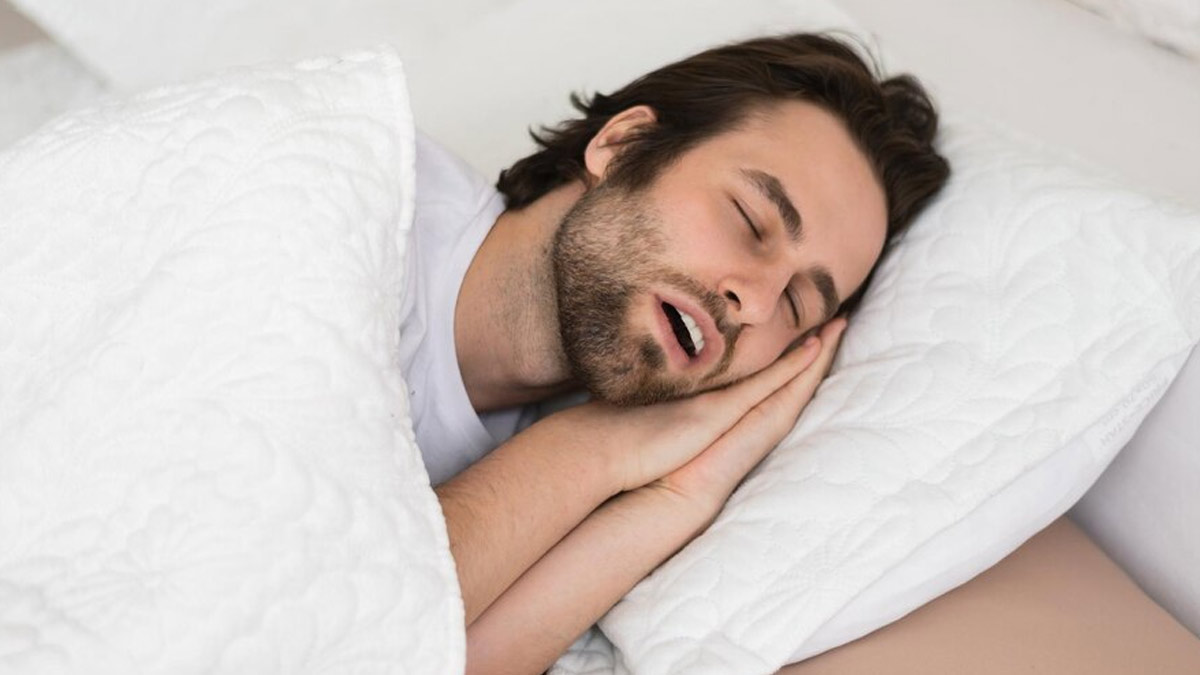
As troubling as snoring may be, it is mostly normal and nothing to be alarmed about. It usually occurs when airflow through the nose and mouth is obstructed, says Dr Arun Chowdary Kotaru, Consultant - Respiratory and Pulmonology and Sleep Medicine, Artemis Hospitals.
Table of Content:-
As people sleep, the muscles in the throat relax, and the tissues in the upper airway can partially block the airflow. This causes the tissues to vibrate, producing the snoring sound, he explains further. These are mostly harmless and temporary. However, if it is persistent, it is crucial to get yourself examined for underlying medical problems, like sleep apnoea.
Also Read: Do You Struggle To Sleep At Night? Try These Tips To Improve Your Quality of Sleep
When Is Snoring Normal?

According to the Sleep Foundation, “infrequent” snoring is normal and not a cause for concern.
Dr Kotaru says, “Occasional snoring, especially in specific sleep positions or after consuming alcohol or sedatives, is usually harmless.” He shares that other factors like allergies, colds, or a deviated septum can also contribute to temporary snoring.
Signs Your Snoring Is Linked To Sleep Apnoea

An estimated 100 crore people are affected by Obstructive Sleep Apnoea (OSA) worldwide, reports the MSD Manual. Unfortunately, most of these people remain undiagnosed and untreated.
Snoring is one of the key symptoms of OSA, which occurs when the muscles that control your airway temporarily relax, narrowing down your airway and cutting off breathing temporarily.
According to Dr Kotaru, snoring becomes a concern when it's chronic, loud, and accompanied by other symptoms. Some of the characteristics of sleep apnoea-related snoring include:
- Loud, frequent snoring is often described as harsh or rattling.
- Periods of silence during snoring are followed by gasps or snorts as breathing resumes.
- Excessive daytime sleepiness
- Restless sleep, which includes tossing and turning or waking up frequently during the night.
- Frequent headaches upon waking up.
- A dry mouth or sore throat is often experienced in the morning.
- Irritability, difficulty concentrating, or memory problems.
Also Read: How Maintaining A Sleep Schedule Boosts Your Heart Health: Ways To Create One
How To Reduce Snoring Associated With Sleep Apnoea

Sleep apnea commonly occurs in people with excess weight, which contributes to airway obstruction, those with large tonsils, adenoids, or a thick neck, older adults, and people with hormonal issues.
Therefore, certain measures can help not only reduce your risk but can also help manage your condition. These include:
- Losing weight
- Avoiding alcohol and sedatives before bed
- Quitting smoking
- Maintaining a regular sleep schedule
- Dental devices
- Continuous Positive Airway Pressure (CPAP) machine, which delivers pressurised air to keep the airway open.
- In severe cases, surgery might be considered to widen the airway.
Dr Kotaru says, "It's essential to consult a healthcare professional if you suspect sleep apnoea." "They can diagnose the condition and recommend appropriate treatment," he concludes.
Also watch this video
How we keep this article up to date:
We work with experts and keep a close eye on the latest in health and wellness. Whenever there is a new research or helpful information, we update our articles with accurate and useful advice.
Current Version